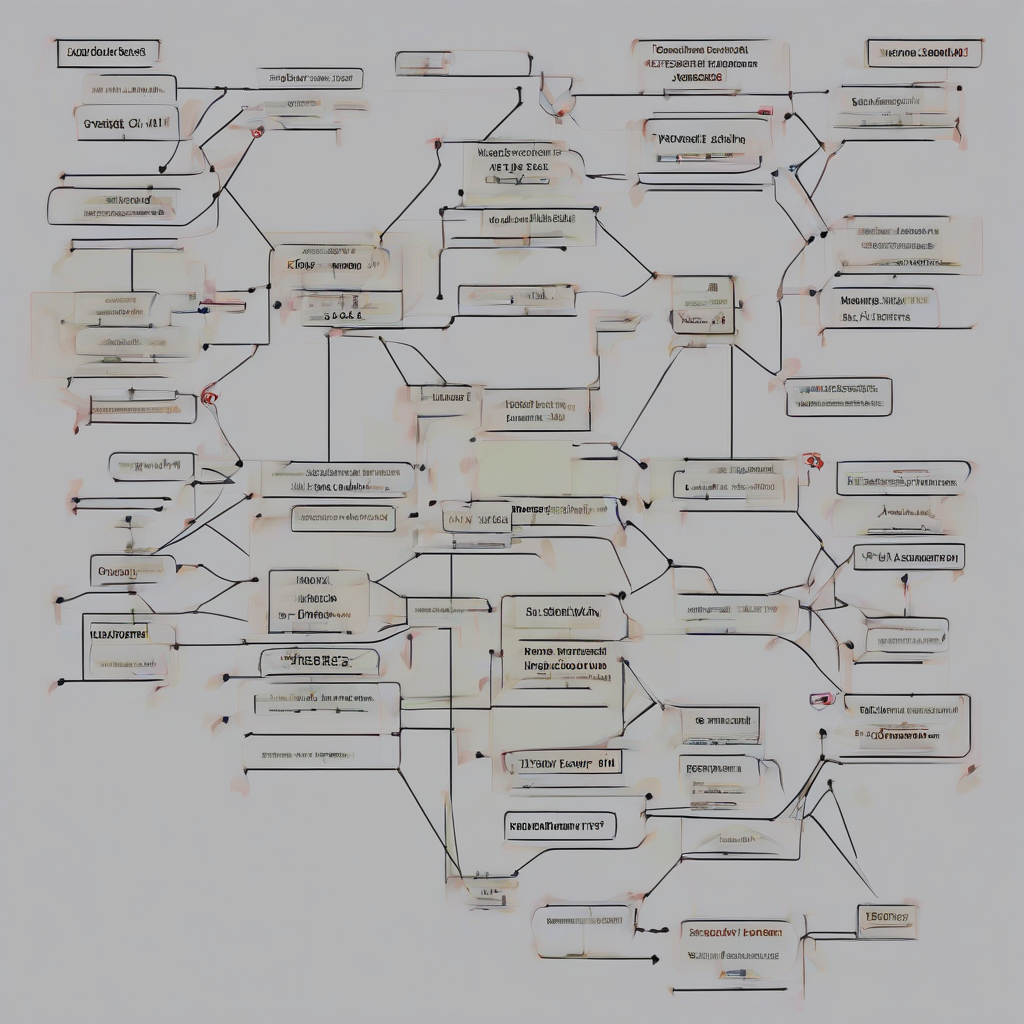Unlocking Cybersecurity Expertise: A Comprehensive Guide to Master’s Degrees in Cybersecurity
Unlocking Cybersecurity Expertise: A Comprehensive Guide to Master’s Degrees in Cybersecurity
In today’s increasingly interconnected world, cybersecurity threats loom larger than ever. From sophisticated ransomware attacks targeting critical infrastructure to data breaches exposing sensitive personal information, the need for skilled cybersecurity professionals is paramount. A Master’s degree in Cybersecurity offers a pathway to developing the advanced knowledge and practical skills required to combat these evolving threats and safeguard digital assets.
Why Pursue a Master’s Degree in Cybersecurity?
A Master’s degree in Cybersecurity provides several key advantages over undergraduate programs:
- Advanced Technical Skills: Master’s programs delve deeper into specialized areas such as cryptography, network security, incident response, and ethical hacking, providing students with a comprehensive skillset beyond introductory concepts.
- Specialized Knowledge: Students can often choose specializations like cloud security, security architecture, or digital forensics, allowing them to focus on areas of particular interest and career goals.
- Enhanced Career Prospects: A Master’s degree significantly enhances career prospects, opening doors to higher-paying, more challenging, and leadership-oriented roles within the cybersecurity field.
- Research Opportunities: Many Master’s programs offer opportunities to engage in research, contributing to the advancement of cybersecurity knowledge and potentially leading to publications and presentations at conferences.
- Networking Opportunities: Master’s programs provide valuable networking opportunities with faculty, fellow students, and industry professionals, fostering collaborations and career advancement.
- Credibility and Recognition: A Master’s degree from a reputable institution adds significant credibility and recognition to a professional’s resume, demonstrating a commitment to advanced knowledge and expertise.
Curriculum and Coursework: What to Expect
Cybersecurity Master’s programs typically cover a range of core subjects and specialized electives. While specific course offerings vary by institution, common areas of study include:
- Network Security: This covers topics such as firewalls, intrusion detection systems, VPNs, and network segmentation.
- Cryptography and Cryptology: Students learn about encryption techniques, digital signatures, and key management practices.
- Security Architecture and Design: This focuses on designing secure systems and networks, implementing security controls, and risk management.
- Operating System Security: This explores securing various operating systems, including Windows, Linux, and macOS.
- Database Security: This covers securing databases, protecting sensitive data, and implementing access control mechanisms.
- Cloud Security: This focuses on the unique security challenges posed by cloud computing environments, including infrastructure as a service (IaaS), platform as a service (PaaS), and software as a service (SaaS).
- Incident Response and Forensics: This covers techniques for investigating security incidents, collecting evidence, and restoring systems to a secure state.
- Ethical Hacking and Penetration Testing: Students learn ethical hacking techniques to identify vulnerabilities in systems and networks.
- Risk Management and Governance: This involves identifying, assessing, and mitigating cybersecurity risks, developing security policies, and ensuring compliance with regulations.
- Legal and Ethical Issues in Cybersecurity: This explores the legal and ethical implications of cybersecurity practices, including data privacy and intellectual property.
Types of Cybersecurity Master’s Degrees
Several variations of Master’s degrees in Cybersecurity exist, catering to different career aspirations and learning preferences:
- Master of Science (MS) in Cybersecurity: This is the most common degree type, offering a comprehensive curriculum covering a broad range of cybersecurity topics.
- Master of Arts (MA) in Cybersecurity: While less common than the MS, an MA may focus more on the policy and management aspects of cybersecurity.
- Master of Business Administration (MBA) with a Cybersecurity Concentration: This combines business management principles with cybersecurity expertise, ideal for those seeking leadership roles in the industry.
- Online Master’s Degrees in Cybersecurity: Many universities offer online cybersecurity Master’s programs, providing flexibility for working professionals.
Choosing the Right Program
Selecting the right Cybersecurity Master’s program requires careful consideration of several factors:
- Accreditation: Choose a program accredited by a recognized accrediting body, ensuring the quality and rigor of the curriculum.
- Curriculum and Specialization Options: Select a program that aligns with your career goals and interests, offering courses and specializations relevant to your desired field.
- Faculty Expertise: Look for programs with faculty who are leaders in the field, conducting cutting-edge research and possessing relevant industry experience.
- Career Services: Choose a program that offers strong career services, including networking opportunities, internship placements, and job search assistance.
- Reputation and Ranking: Consider the program’s reputation and ranking, reflecting its standing within the academic community and industry.
- Learning Environment: Consider whether you prefer an online or on-campus learning environment, choosing the format that best suits your learning style and lifestyle.
- Cost and Funding: Evaluate the program’s cost, including tuition fees, and explore funding opportunities such as scholarships, grants, and assistantships.
Career Paths and Job Outlook
A Master’s degree in Cybersecurity opens doors to a wide range of rewarding career paths with excellent job prospects. Some potential career options include:
- Security Analyst: Identifies and mitigates security risks, monitors systems for threats, and responds to security incidents.
- Security Engineer: Designs, implements, and maintains security systems and infrastructure.
- Penetration Tester: Conducts ethical hacking to identify vulnerabilities in systems and networks.
- Cybersecurity Manager/Director: Leads and manages cybersecurity teams, develops security strategies, and ensures compliance with regulations.
- Security Architect: Designs and implements the overall security architecture for an organization.
- Forensic Analyst: Investigates cybercrimes, collects digital evidence, and presents findings in court.
- Cloud Security Engineer: Secures cloud-based systems and applications.
- Compliance Officer: Ensures compliance with relevant cybersecurity regulations and standards.
- Security Consultant: Provides cybersecurity consulting services to organizations.
- Chief Information Security Officer (CISO): Leads the overall cybersecurity strategy and operations for an organization.
The demand for cybersecurity professionals is consistently high and projected to grow significantly in the coming years, offering excellent job security and career advancement opportunities.
Essential Skills for Success
Beyond the technical skills gained in a Master’s program, several soft skills are crucial for success in the cybersecurity field:
- Problem-solving skills: The ability to analyze complex problems, identify root causes, and develop effective solutions.
- Analytical skills: The ability to examine data, identify patterns, and draw meaningful conclusions.
- Communication skills: The ability to effectively communicate technical information to both technical and non-technical audiences.
- Teamwork skills: The ability to work effectively as part of a team to achieve common goals.
- Adaptability and continuous learning: The cybersecurity landscape is constantly evolving, requiring professionals to adapt to new threats and technologies.
- Attention to detail: Accuracy and meticulousness are essential in identifying and addressing security vulnerabilities.
- Critical thinking: The ability to evaluate information, identify biases, and make informed decisions.
Continuing Education and Professional Development
The cybersecurity field demands continuous learning and professional development. After obtaining a Master’s degree, professionals can pursue further certifications, attend conferences and workshops, and engage in ongoing research to stay abreast of the latest threats and technologies. Some popular certifications include:
- Certified Information Systems Security Professional (CISSP)
- Certified Ethical Hacker (CEH)
- CompTIA Security+
- Offensive Security Certified Professional (OSCP)
Conclusion (Not included as per instructions)




